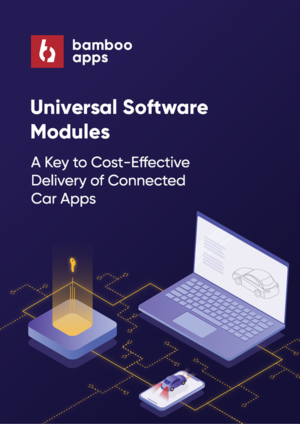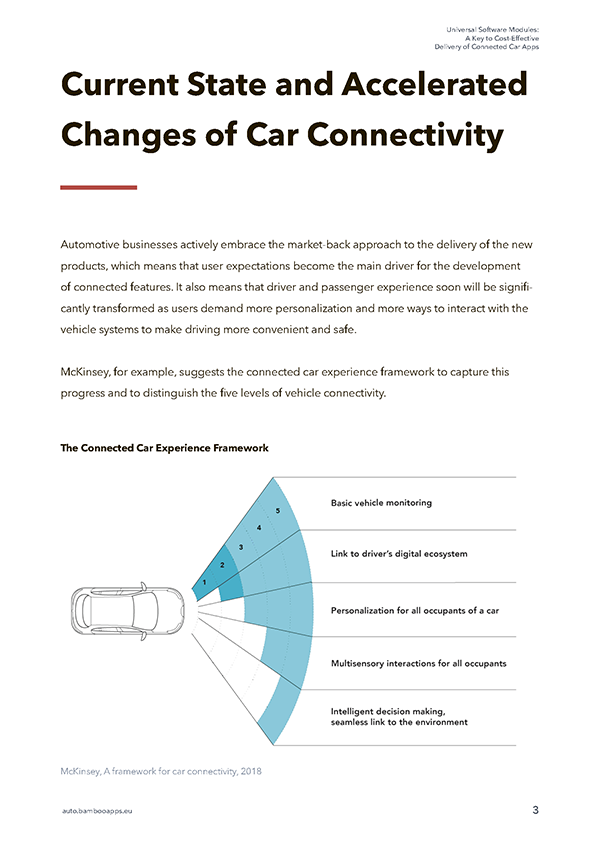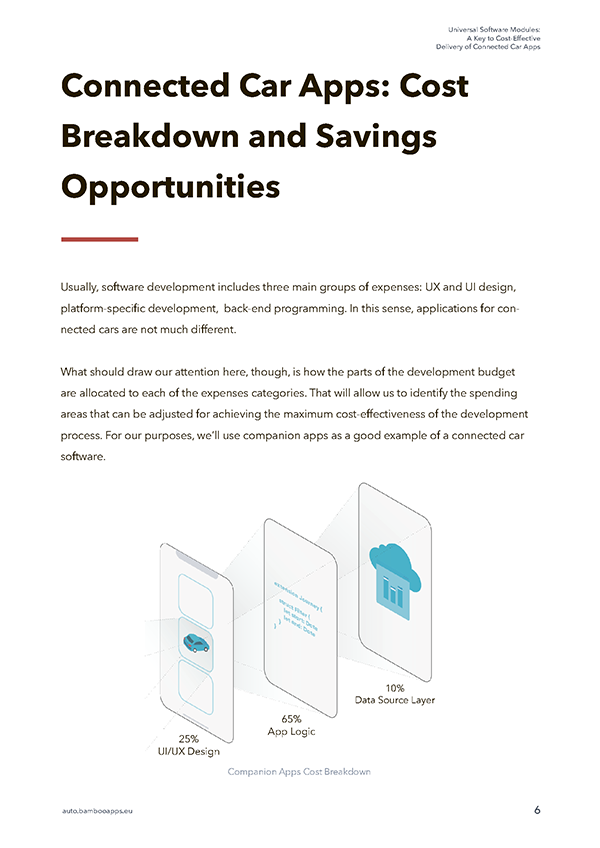


In this ebook, Bamboo Apps suggests how to save on connected car app development by adopting the principles of universal software architecture
From current infotainment apps to more advanced driver assistance systems in the medium term to, ultimately, fully autonomous driving, the number of connected features in cars will be exponentially growing in line with consumers expectations. Connectivity becomes a strategic priority for industry players, while connected car apps are perceived to be key revenue generators in the future.
If the situation unfolds that way, automotive companies will not only have to speed up vehicle software development cycles but also look for cost-effective strategies of delivering new connected features. Creating universal software architecture and design modules, and then re-using them as frameworks will help businesses reduce the time and costs of connected car services deployment.
In this paper, we review the current state of connectivity experience and consider its possible future. We also analyze the cost breakdown of connected car app development, identify additional saving opportunities, and suggest a strategy to reduce the costs of vehicle software implementation.
Related project
See how Bamboo Apps implements the principles of cost-effectiveness when developing connected car software for an industry-leading car manufacturer.

